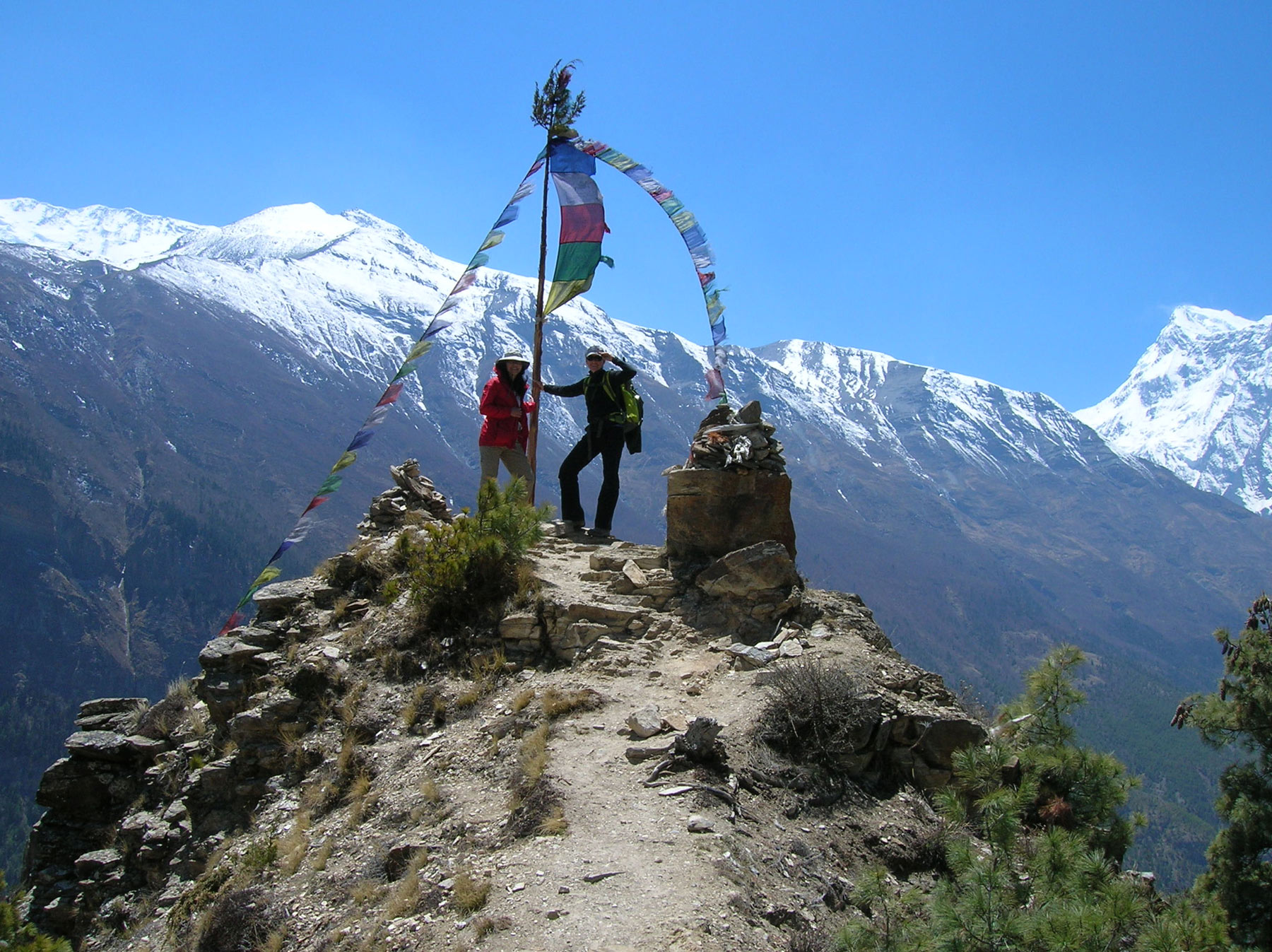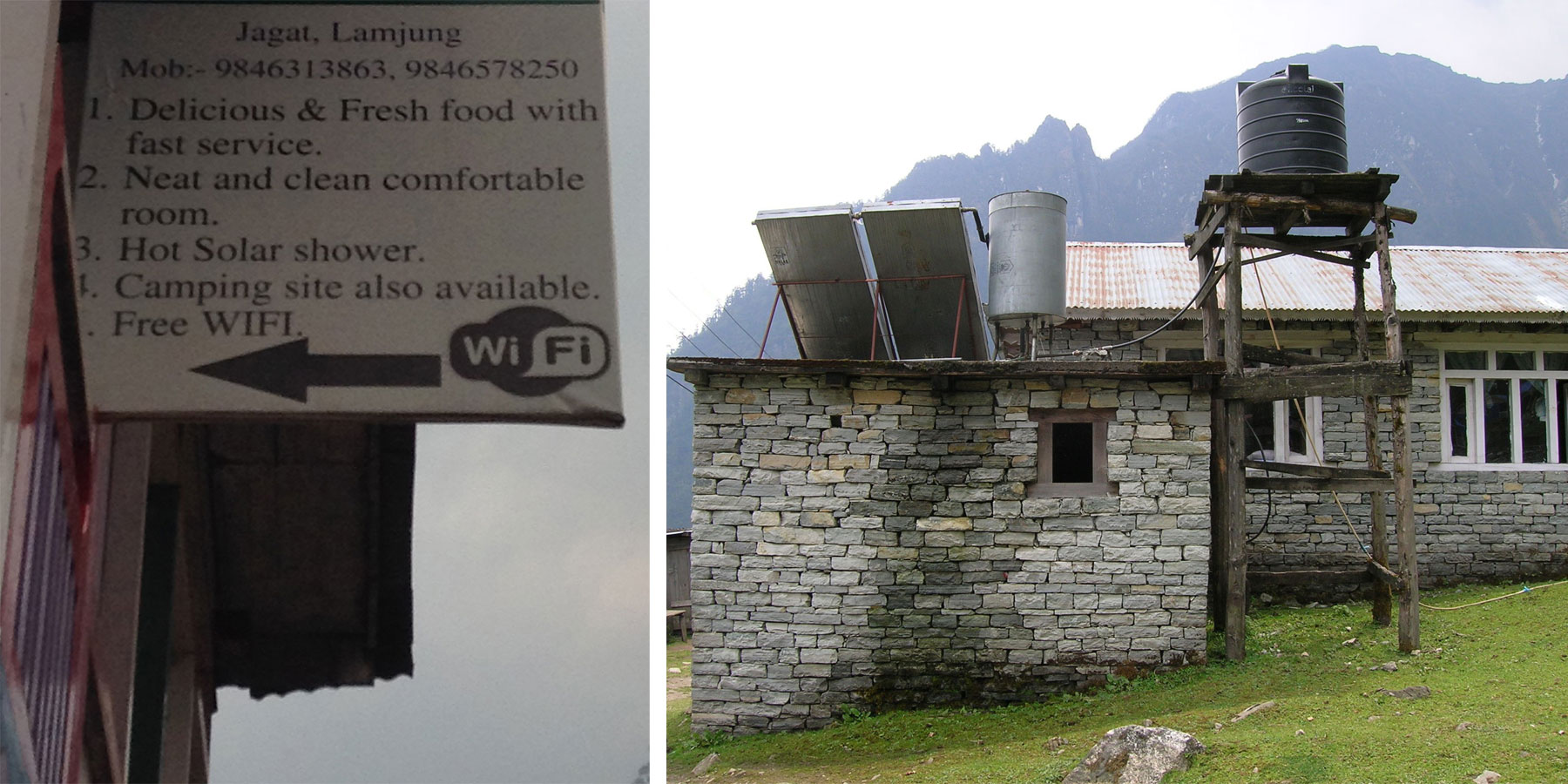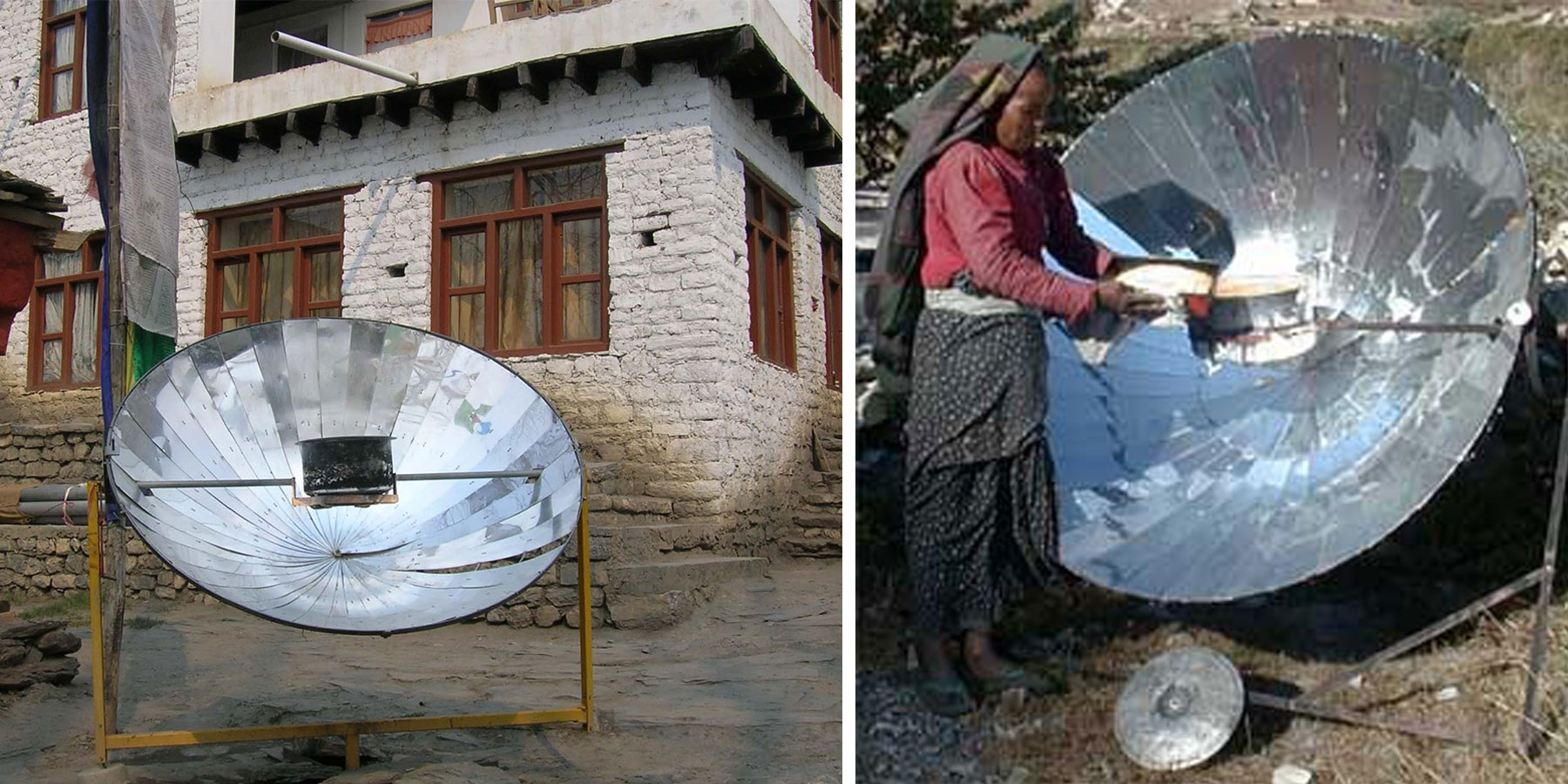
In the rural country side of Nepal, where trekkers come from around the world to enjoy the beauty of the Himalayas, its people and traditions, tea houses offering accommodations to trekkers are at the center of the economy. In order to serve their guests in a region where resources are scarce and access to reliable public electricity is frequently unavailable, many tea houses have come to rely on a variety of simple renewable energy and conservation strategies.
Location
Nepal
Story Author
Vanna Whitney

To keep the lights on at night during power outages, tea house proprietors buy small photovoltaic (solar electric) panels to power critical lighting in the kitchen and dining areas so that guests can buy meals and enjoy each other’s company in the evenings.

Hot water for showers is of extreme interest to trekkers, as the nights are often near or below freezing - even during the late spring. The most popular tea houses boast of their solar hot water systems, since this greatly increases the likelihood of getting a warm shower.

The tea houses also provide hot meals for trekkers. Since many establishments are located well above the tree line - accessible only by a very rocky, dirt road (and some only by foot) - both wood and gas are very expensive. The solution during the day is to use six foot diameter solar reflectors for cooking large pots of food at once. Also, to aid in conservation, all the trekkers are asked to place their orders in advance and are encouraged to order the same or similar dishes to make the cooking more efficient. All meals are then cooked and served at one time.

To conserve precious fuel, a few logs of wood are used sparingly during the evening in one potbellied stove at the center of one communal dining room. All the guests gather there to eat, talk, warm themselves, and dry out clothing illuminated by a solar-powered light.
Impressive! These are simple, effective, efficient, low-cost strategies used every day. By necessity, renewable energy is already an influential driver of the economy in rural Nepal!